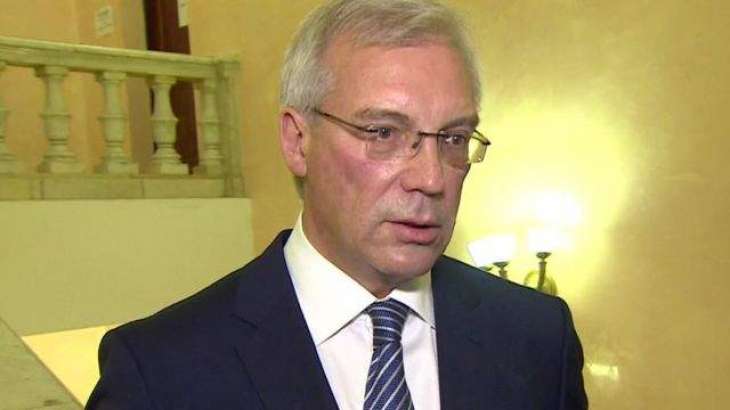The United States' possible pullout from the Intermediate-Range Nuclear Forces (INF) Treaty will complicate prospects for the prolongation of the New Strategic Arms Reduction Treaty (New START), Russian Deputy Foreign Minister Alexander Grushko said on Thursday.
VERONA (Italy) (Pakistan Point news / Sputnik - 25th October, 2018) The United States' possible pullout from the Intermediate-Range Nuclear Forces (INF) Treaty will complicate prospects for the prolongation of the New Strategic Arms Reduction Treaty (New START), Russian Deputy Foreign Minister Alexander Grushko said on Thursday.
On Saturday, US President Donald Trump announced US plans to withdraw from the treaty because Moscow was allegedly violating the agreement. Kremlin spokesman Dmitry Peskov refuted Trump's claims and stressed that Russia would be forced to take measures to ensure its security if the United States started to covertly or openly develop weapons prohibited under the agreement.
"Of course, all the regimes of arms control and non-proliferation are interconnected, not legally, but logically. For example, there is an interconnection between the New START and missile defense system ... Of course, this decision [on the INF Treaty withdrawal] is complicating prospects for the prolongation of the New START Treaty," Grushko said on the sidelines of the Eurasian Economic Forum in Verona.
The official expressed his hope that Moscow and Washington would be able to avoid a new arms race, adding that deployment of the short-range and intermediate-range missiles would pose a number of new security risks.
The INF Treaty was signed in 1987 by former President of the Soviet Union Mikhail Gorbachev and then-US President Ronald Reagan, who agreed to destroy all cruise or ground-launched ballistic missiles with ranges between 500 and 5,500 kilometers (310 and 3,400 miles).
The New START Treaty entered into force in 2011. The agreement covers a 10-year period with the possibility of a five-year extension. The treaty is based on several previous joint non-proliferation arrangements and limits the number of deployed intercontinental ballistic missiles, submarine-launched ballistic missiles, nuclear armed bombers, and nuclear warheads. The talks on extending the agreement have been delayed over mutual concerns about compliance.




